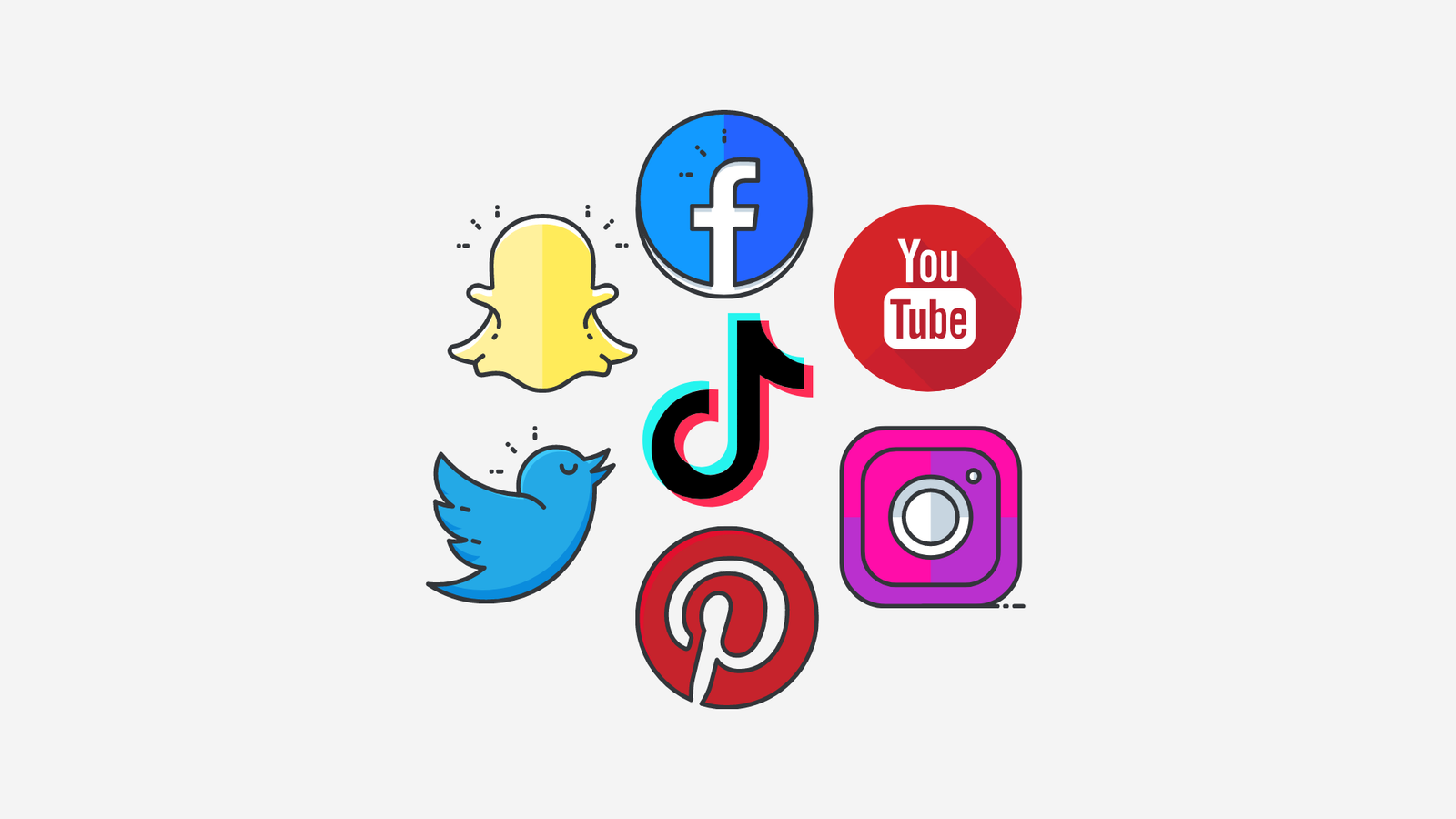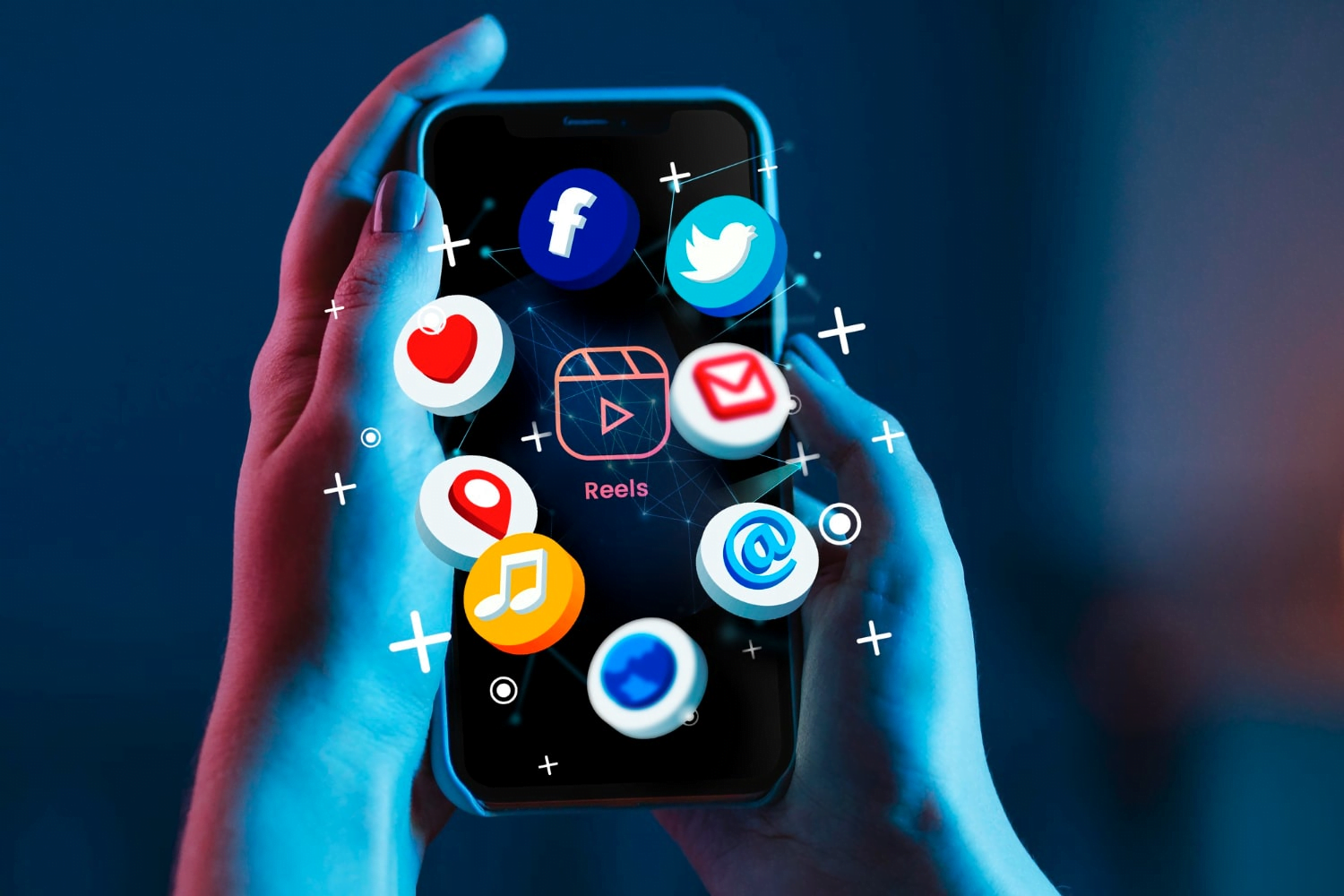We’re in a digital age where social media platforms dominate our daily lives. For businesses and marketers, this means one thing – opportunities. But with so many platforms available, the million-dollar question is: Which is the best for social media marketing?
As we delve into this topic, let’s understand what makes a social platform tick for marketing and how some social media sites differ from other social media platforms. By the end of our discussion, you’ll have a clearer perspective on where your target audience hangs out and how you can capture their attention with social media marketing.
Social Media Platforms Overview
When we think of a social media site, top social platforms like Facebook, with billions of monthly active users, naturally come to mind. Then there’s the popular social media platform Twitter, a microblogging platform that’s been a game-changer over the past decade. Instagram, LinkedIn, and the rest join the list of top social media channels.
But to decide the best social media marketing platforms, one needs to look beyond just numbers. Each platform serves a different purpose, caters to a unique audience, and offers distinctive tools for marketers.
Diving Deep Into Social Media Marketing
Social media marketing is not just about making posts on your social media account and hoping they go viral. It requires a well-thought-out social media marketing strategy. Your content, whether video content or visual content, should resonate with your audience, reflect your brand identity, and align with your social media marketing goals.
Let’s delve deeper into some leading social platforms:
The Majesty of Facebook Marketing
Facebook remains one of the largest social media sites with over 2.9 billion users, and any conversation about social media strategy would be incomplete without it.
1. Audience Demography: The massive volume of Facebook users means that nearly every audience, from young adults to seniors, can be found here. Whether you’re targeting sports enthusiasts, sports team fans, or professionals in a particular field, the segmentation tools on Facebook allow for precise targeting.
2. Business Integration: With options for business accounts and business pages, Facebook makes it easy for companies to maintain a professional yet engaging presence. Features like Shop integration for an e-commerce business can even turn your page into a digital storefront.
3. Advanced Analytics: Facebook’s advanced analytics tools allow businesses to measure the effectiveness of their social media marketing campaigns in real-time, making necessary tweaks to enhance performance.
Tweeting Your Way to Success: Twitter Marketing
Twitter, with its rapid-fire microblogging platform format, presents unique opportunities and challenges for marketers.
1. Real-Time Engagement: With its emphasis on live conversation, brands can engage their audience in real time, respond to current events, or address concerns immediately. For instance, the Twitter accounts of airlines are known for real-time customer service.
2. Hashtag Power: Unlike any other social platform, Twitter’s hashtag system can make content go viral in a matter of hours. By capitalizing on trending hashtags or creating brand-specific ones, companies can increase brand awareness and customer engagement.
3. Twitter Ads and Influencer Marketing: With options for paid advertising and a robust influencer marketing platform, brands can extend their reach beyond their followers, tapping into new audiences.
Instagram: A Visual Feast
Instagram, owned by Facebook, is a predominantly visual platform, making it perfect for brands with strong visual content.
1. Stories and More: Instagram stories offer brands a temporary yet impactful way to engage users. With options for polls, Q&A, and more, they’re perfect for brands looking to boost customer engagement.
2. IGTV and Reels: For brands with video content, IGTV offers a longer format, while Reels is perfect for short videos. These features, combined with Instagram’s emphasis on visuals, make it a great platform for industries like fashion, travel, and food.
3. Shop and Explore: With the integration of shopping features, businesses can now tag products in their posts. This turns their profiles into digital storefronts, perfect for e-commerce business models.
LinkedIn: Beyond Professional Networking
While LinkedIn started as a professional network, it’s grown into a formidable platform for B2B marketing.
1. Thought Leadership: Publishing articles or blog posts on LinkedIn can establish a brand or individual as a thought leader in their industry.
2. LinkedIn Ads: The platform’s paid advertising options target professionals based on their job titles, industries, and more. This level of segmentation is a boon for B2B social media marketing.
3. Company Culture Showcasing: With features tailored for businesses, companies can showcase their company culture, attracting not only potential clients but also prospective employees.
Harnessing the Power of Multiple Platforms
While it’s tempting to focus on some social media platforms, there’s a growing trend among digital marketing agencies and social media marketers to be present on leading social media platforms like YouTube, Pinterest, Snapchat, TikTok, and more. This approach ensures a comprehensive social media presence and reaches different segments of your audience across different social media marketing platforms.
However, juggling between multiple popular social media platforms requires a nuanced social media strategy. Using tools like Sprout Social, and RTP Social Genie, brands can streamline their marketing activities, ensuring consistent messaging across different social media platforms.
The Role of Audience Engagement
No matter which social platform you choose, customer engagement is crucial. After all, what’s the point of having a social media account if you’re not interacting with your followers? Engaging content, short videos, polls, and AMAs (Ask Me Anything) sessions are some ways to engage your audience.
Also, keep in mind that platforms like YouTube, being the second largest search engine, offer brands an opportunity to reach new audiences through video content.
So, Which is the Best Social Media Platform?

Deciding the right social platform for social media marketing is not one-size-fits-all. It depends on your business, your target audience, and your marketing goals. An e-commerce business might find more success on a popular social platform like Instagram or Facebook, while a consulting firm might gain more traction on LinkedIn.
However, with the right strategy, tools, and insider tips, any brand can find its sweet spot across social media networks. It’s all about understanding where your audience is and delivering the content they love.
Wrapping Up
The landscape of social media marketing platforms is vast and varied. Whether you’re a small business trying to build a personal brand or a market leader aiming to maintain your position, there’s a platform and a social media marketing strategy out there for you.
So, dive in, experiment, and remember that in the world of social media marketing, flexibility and adaptability are key. Happy social media marketing!
Feeling inspired by the vast potential of social media marketing but unsure where to start?
RTP Social Solution is your go-to partner in navigating this dynamic landscape. Dive deep into the world of tailored strategies, audience engagement, and result-driven campaigns with us. Don’t let the ever-evolving maze of social platforms overwhelm you. Let’s chart a course to success together.
Reach out to RTP Social Solution today and turn your social media marketing aspirations into tangible results! 💡




